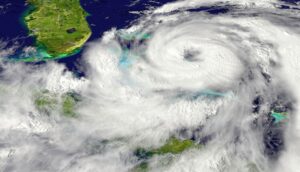

Dealing with a denied home insurance claim can be a frustrating and stressful experience, especially in the state of Florida, where natural disasters such as hurricanes, floods, and wildfires are common. If you find yourself in this situation, it’s important to understand your rights and options to get the compensation you deserve.
Here are some steps you can take to deal with a denied home insurance claim in Florida:
- Understand why your claim was denied
The first step in dealing with a denied home insurance claim is to understand why it was denied. Insurance companies have specific criteria for accepting or denying claims, and it’s important to know if your claim was denied due to a technicality, a misunderstanding, or a deliberate attempt by the insurer to avoid paying.
Some common reasons for denied claims in Florida include:
- Filing a claim for damages that are not covered by your policy
- Failing to meet policy requirements, such as notifying the insurer of the loss within a certain timeframe or cooperating with the investigation
- Not paying your insurance premiums on time
- Providing false or misleading information on your claim application
- Pre-existing damage or wear and tear
If you’re unsure why your claim was denied, you can ask your insurance company for an explanation in writing.
- Review your insurance policy
Before you challenge a denied claim, review your insurance policy to ensure that your claim is covered under the terms of your policy. Check for any exclusions or limitations that may apply, such as hurricane deductibles or exclusions for certain types of damage.
It’s also important to make sure that you have enough coverage to pay for the damages you’re claiming. If your policy limits are too low, you may not receive enough compensation to fully repair or rebuild your home.
- Gather evidence
To support your claim, gather as much evidence as possible. This can include:
- Photos or videos of the damage
- A detailed list of damaged or destroyed items
- Receipts or invoices for repairs or replacements
- Estimates from contractors or repair companies
- Police reports, if applicable
Make sure to keep copies of all documents and evidence related to your claim.
- Hire a public adjuster
If you’re having trouble getting your insurance company to pay your claim, consider hiring a public adjuster. A public adjuster is a licensed professional who can help you navigate the claims process and negotiate with your insurance company on your behalf. They can also help you document your claim and provide an estimate of the damages.
Public adjusters typically work on a contingency basis, meaning they only get paid if you receive a settlement from your insurance company. However, their fees can be steep, so it’s important to weigh the costs against the potential benefits.
- File a complaint with the Florida Office of Insurance Regulation
If you believe your insurance company is acting in bad faith or violating Florida insurance laws, you can file a complaint with the Florida Office of Insurance Regulation. This state agency investigates complaints and can take enforcement action against insurers that violate the law.
To file a complaint, visit the Florida Office of Insurance Regulation’s website and fill out the complaint form. You’ll need to provide details about your claim, your insurance policy, and the actions of your insurance company.
- Consult with an attorney
If your insurance company continues to deny your claim, you may want to consult with an attorney who specializes in insurance law. An attorney can review your policy, help you understand your rights, and advise you on the best course of action.
In some cases, an attorney may be able to negotiate a settlement with your insurance company or take legal action to enforce your rights.



